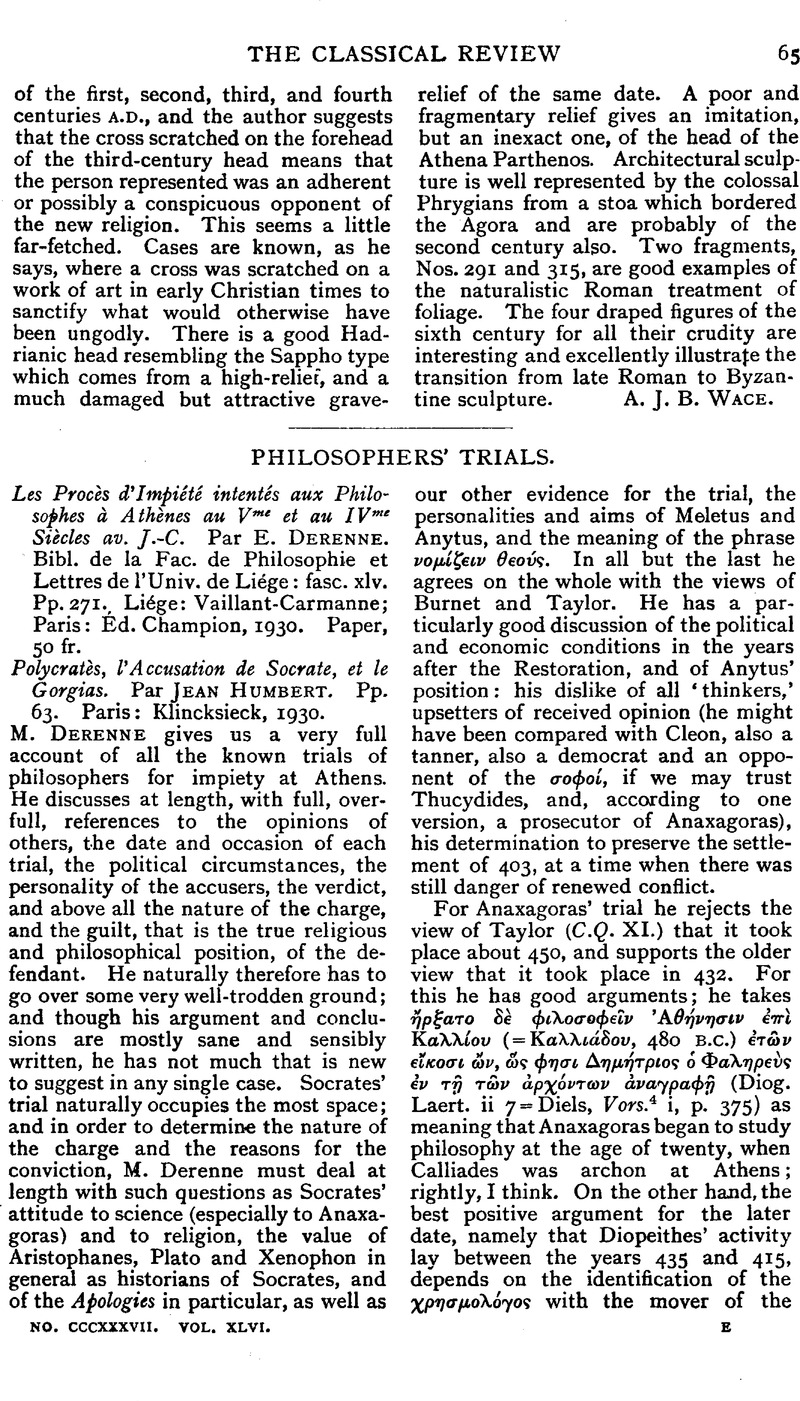No CrossRef data available.
Published online by Cambridge University Press: 27 October 2009

66 1 Still less certain is the identification with the χρησμολγος who was consulted in 367 at Sparta as to the successor to Agis; neither Xenophon nor Plutarch calls the latter an Athenian.
Derenne answers one of Taylor's arguments, that Plato never represents Socrates as having been in personal contact with Anaxagoras, as follows: ‘Platon avait peut-être d'excellentes raisons de ne pas présenter Socrate en relations avec Anaxagore. Sans doute ne se souciait-il guère de mettre en scène Socrate conversant avec un astronome condamné pour impiété, alors que l'on avait précisément reproché a son maître de s'occuper de météorologie et d'astronomie.’ This must be nearly the thinnest argument on record; but it can be matched: for example, by Beloch in support of his view that there was a large Spartan force at Thermopylae: ‘und endlich: würde die Inschrift so viel Wesens davon machen, dass sie τοῖς κενων ῥμασι πειθμενοι gefallen wären, wenn sie nicht Kameraden gehabt hätten, von denen man das nicht rühmen konnte?’